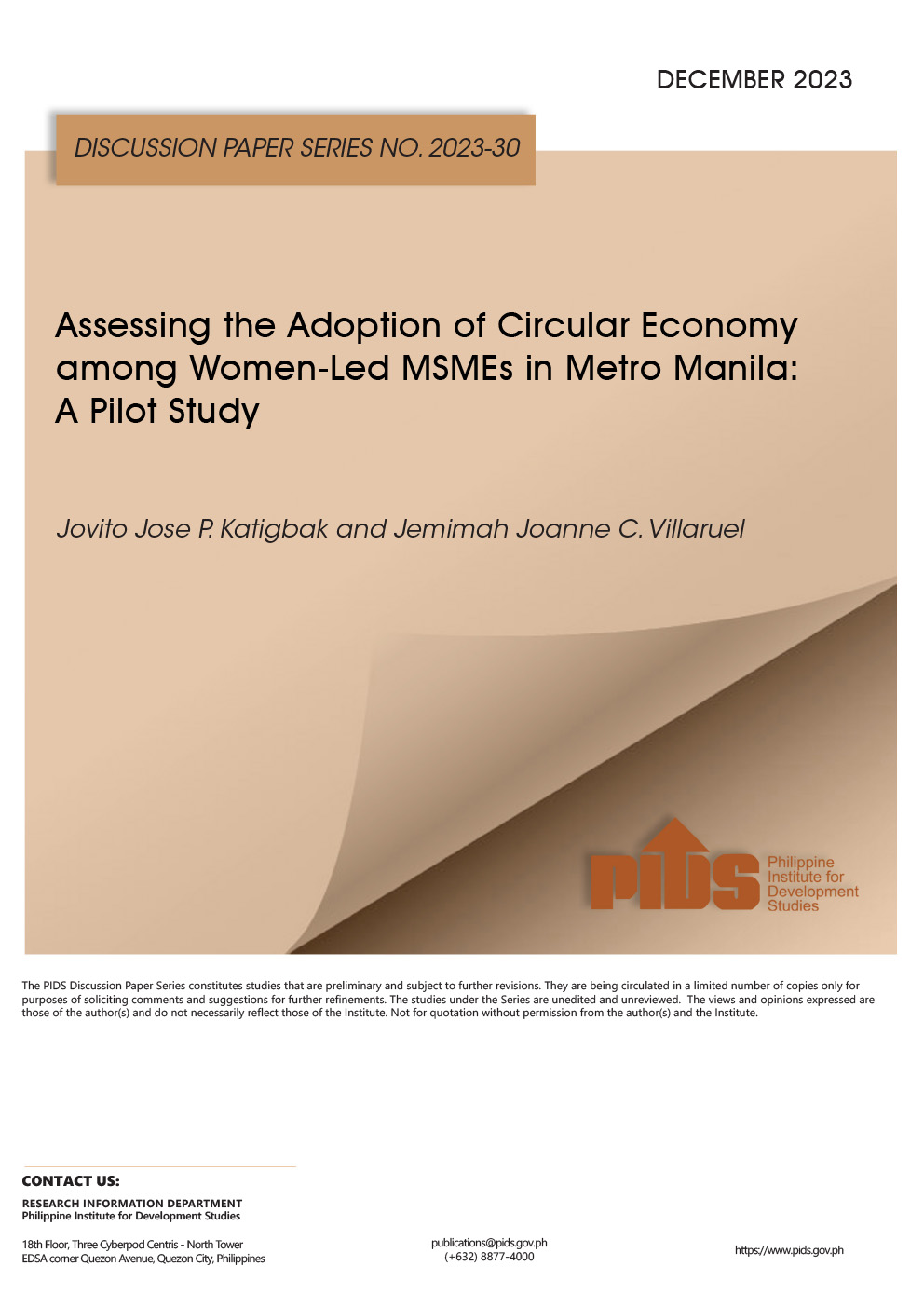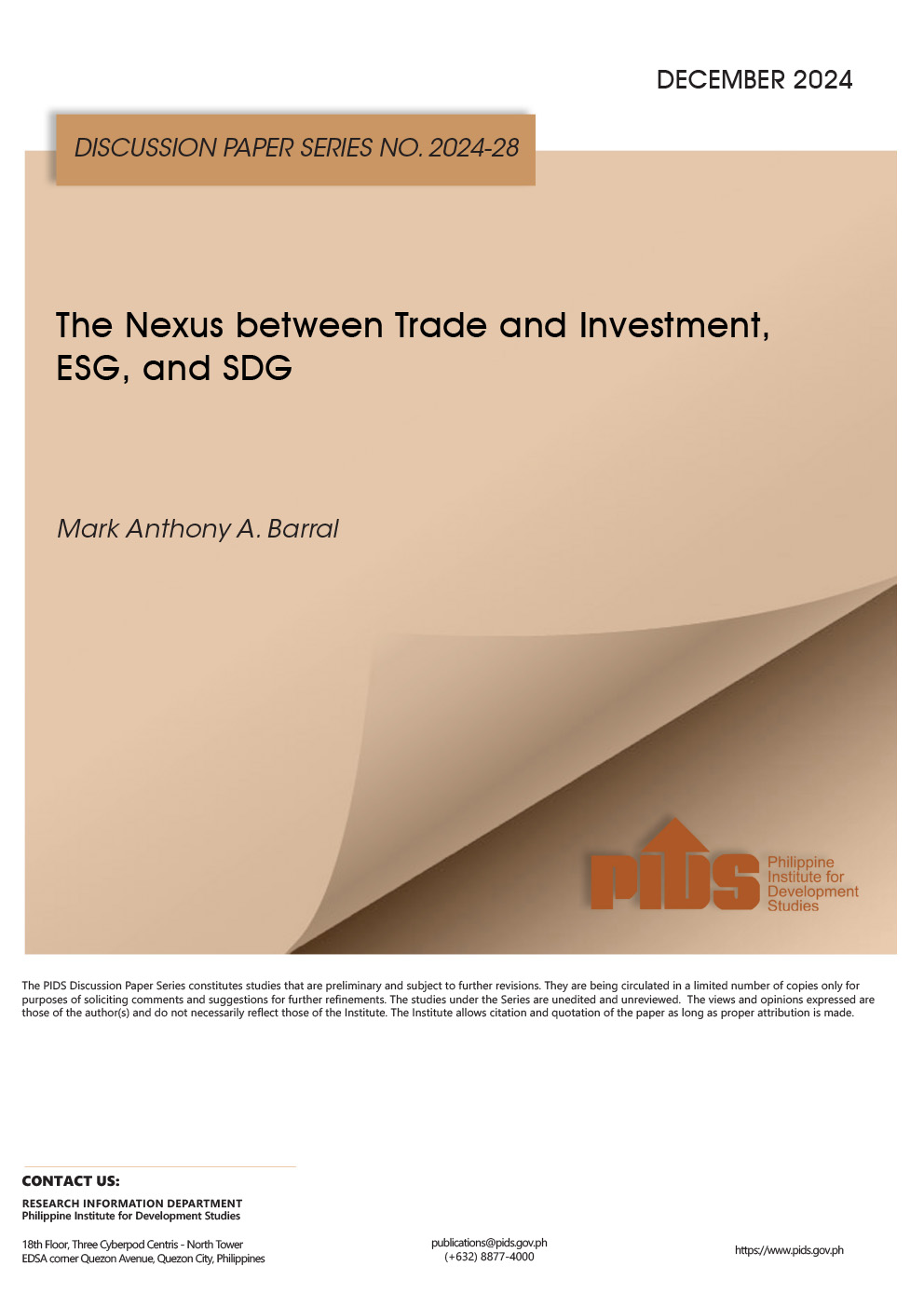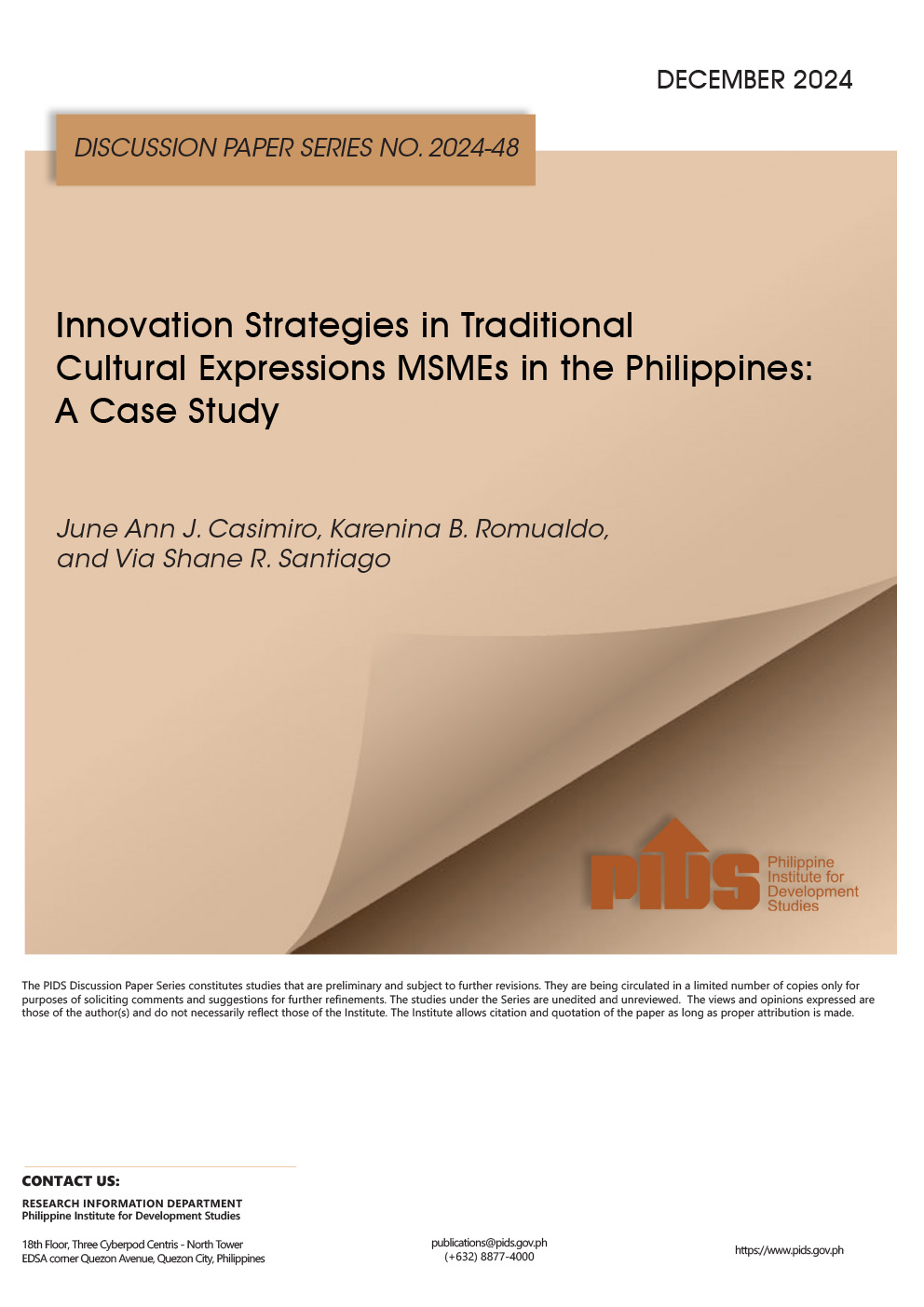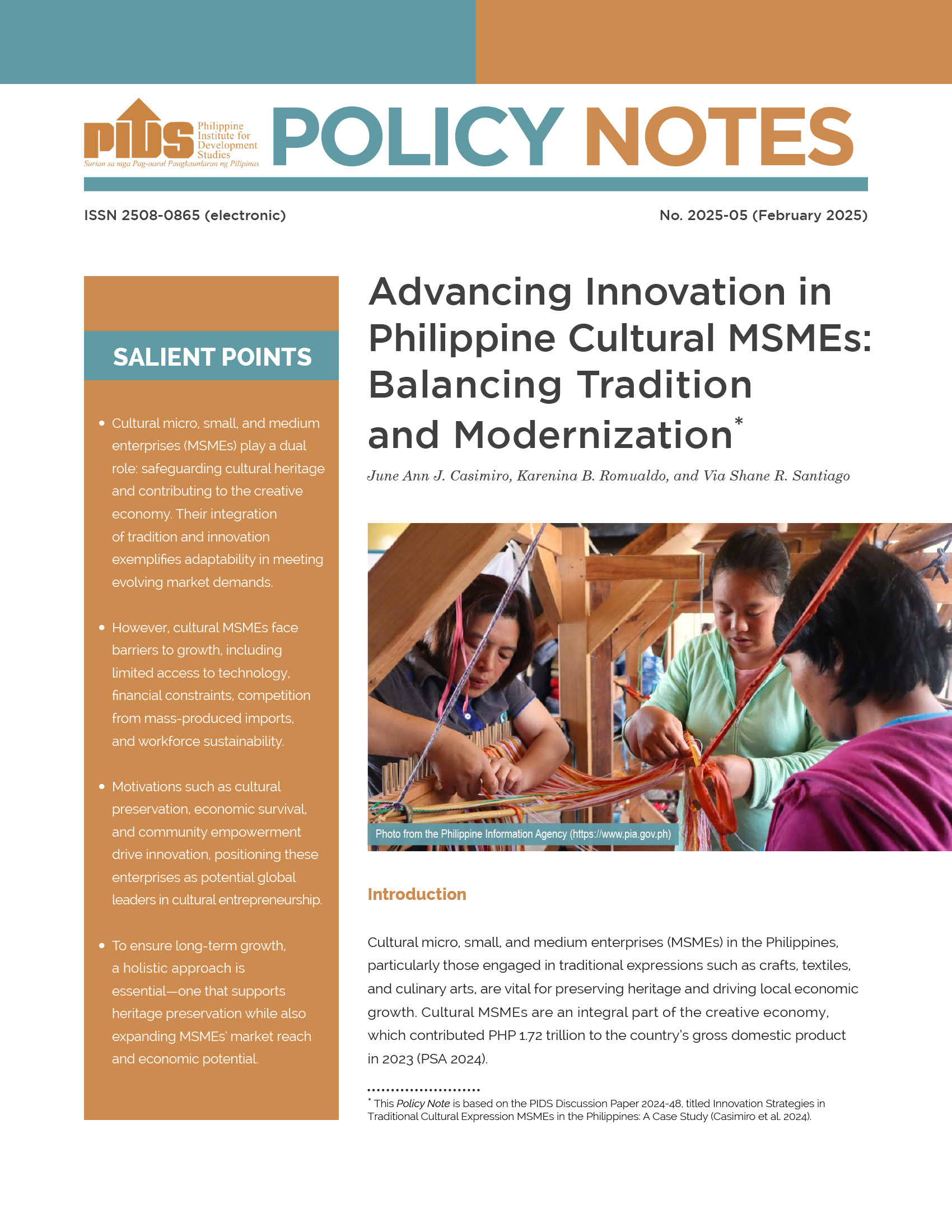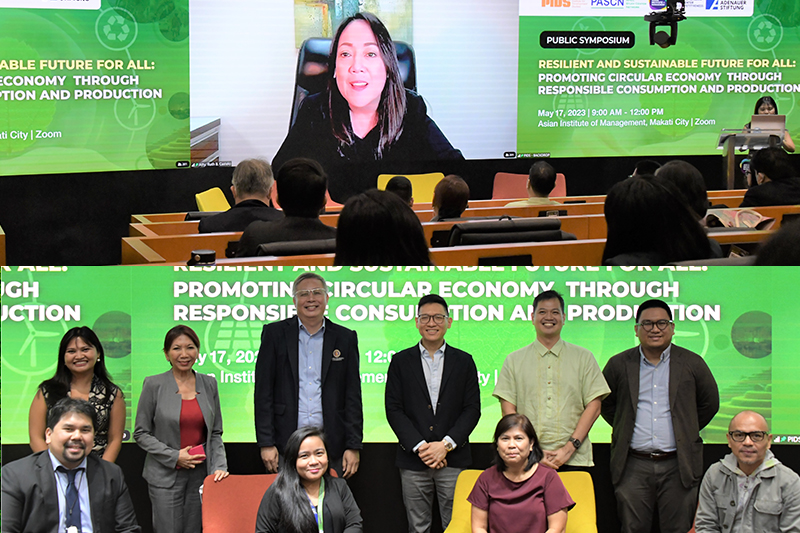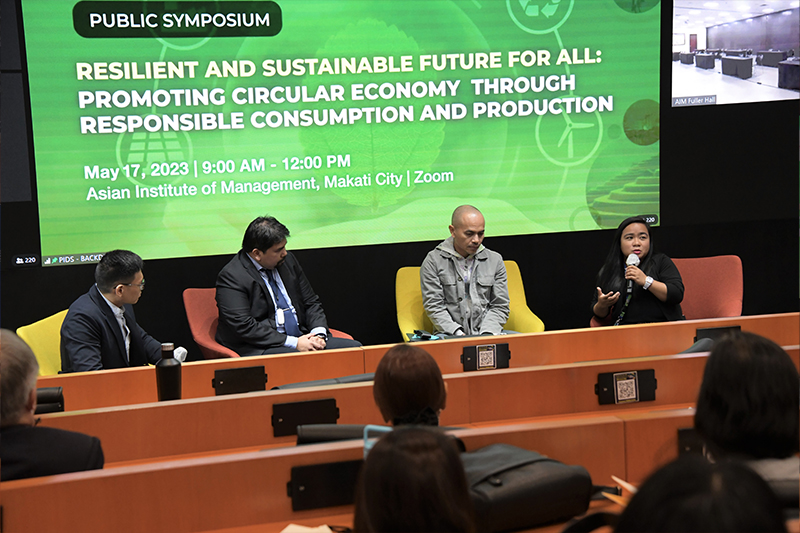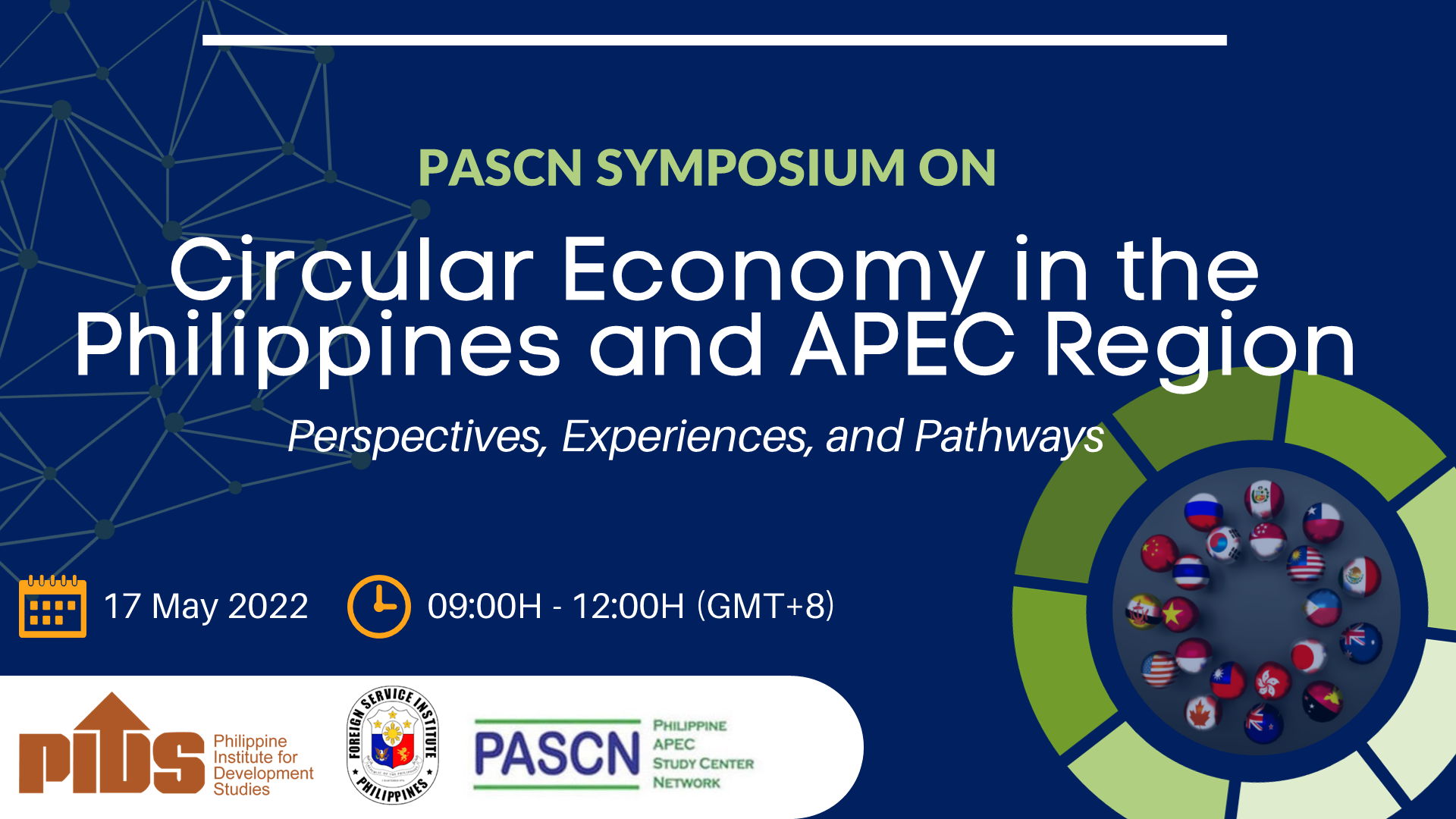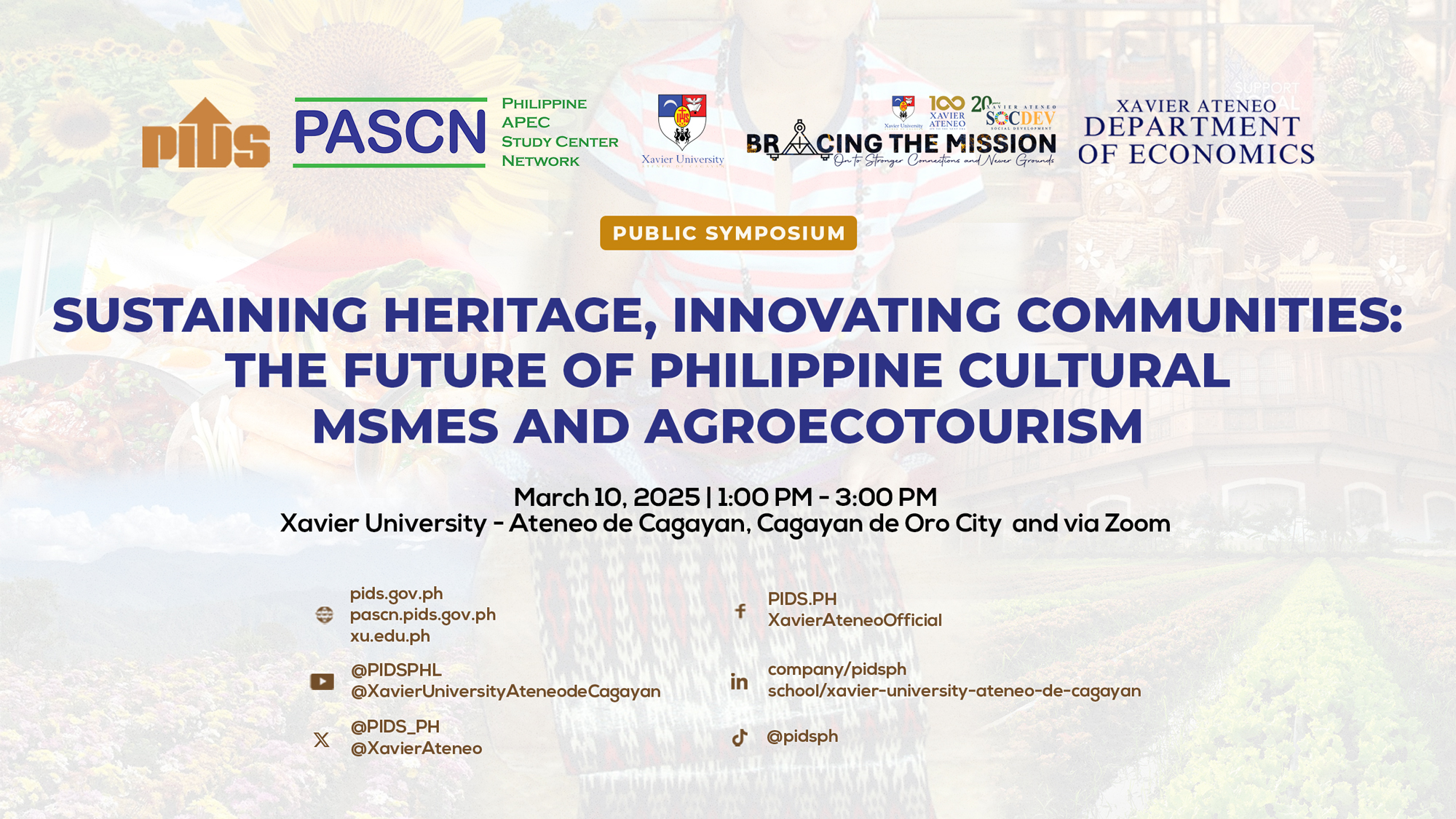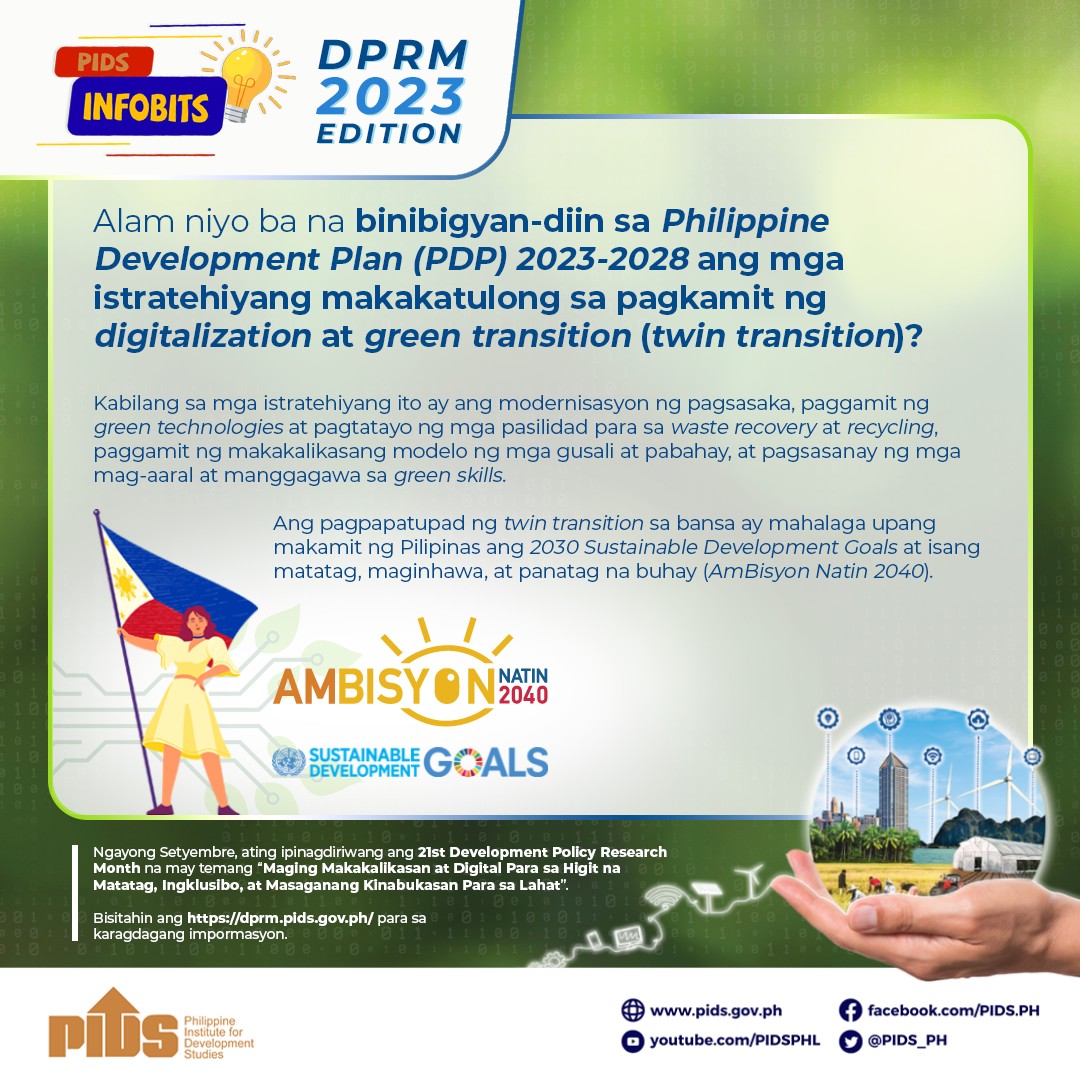Buoyed by favorable developments at the global and regional levels, circular economy (CE) has been emerging in the Philippines due to an increasing call for the effective mainstreaming of sustainable principles and practices across various economic sectors. Often characterized as an industrial system regenerative or regenerative by design, CE presents guidelines that enable business-, society-, and environment-friendly economic development. This is vital for the Philippines as it seeks to address waste management issues and reduce carbon emissions by advancing Sustainable Development Goal 12: Sustainable Consumption and Production. The government has enacted and implemented several laws, policies, and regulations to steer the country towards cleaner production. The private sector and external partners similarly promote CE through their respective programs, projects, and activities.
Notwithstanding the current initiatives, there is a need to focus national thrust and efforts on the micro, small, and medium enterprises (MSMEs) as they comprise over 99 percent of all businesses in the Philippines. This is especially true for women-led MSMEs (WMSMEs), which composed around 60 percent of business name registrations in 2019. Hence, this pilot study sought to assess the level of CE adoption among WMSMEs in Metro Manila through a survey questionnaire, which garnered 58 responses. It found a low level of awareness regarding CE principles and CE-related government programs among the respondents and a lack of demand for circular goods/services by the customers. These translate to misalignment between CE principles and their firm’s strategy and business model. The results also show that most of the WMSMEs in Metro Manila still practice linear methods, as evidenced by the non-use of renewable resources, lack of resource recovery strategies and post-sales services, and absence of ecodesign. The respondents exhibited somewhat positive performance in waste management. In addition, WMSMEs do not engage in CE-oriented partnerships and collaborations with their co-enterprises and customers.
Accordingly, the Philippine government may consider a multi-level approach in mainstreaming CE among (W)MSMEs. Micro-level initiatives may include advocacies on CE, training programs for MSMEs, provision of incentives, and business support schemes. At the meso level, smart regulation and mini eco-parks may be explored. Lastly, developing a national framework and monitoring mechanism may be critical undertakings at the macro level.
Comments to this paper are welcome within 60 days from the date of posting. Email publications@pids.gov.ph.

